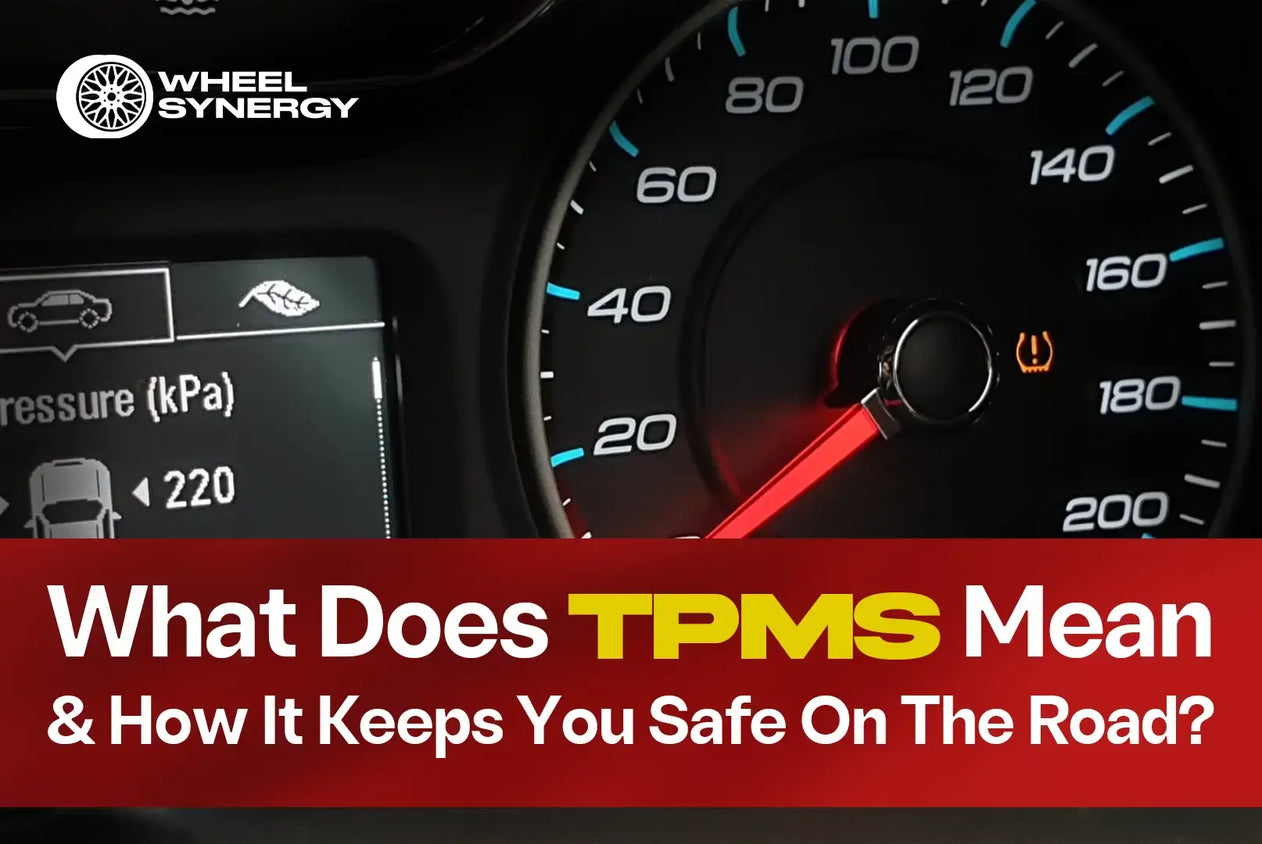Your cart is empty.




MON - FRI: 9:00AM - 5:30PM (EST)
SAT: 9:00AM - 3:00PM (EST)

Your vehicle's tires play a crucial role in ensuring a safe and smooth ride. Often overlooked, properly inflated tires are critical for road safety and should always be included in your routine tire maintenance.
According to tire experts, under normal driving conditions, air-filled tires can lose from 1 to 2 psi per month as air permeates through the tires. This is where a Tire Pressure Monitoring System (TPMS) comes into play. In this blog post, we will explore what TPMS means, how it works, its benefits, and why it's a vital component of modern vehicles.
TPMS, or Tire Pressure Monitoring System, is an electronic system designed to monitor the air pressure in your vehicle's tires. It's a symbol of automotive progress and safety, with its roots tracing back to the 1980s when luxury European vehicles first introduced the technology. However, its mass adoption in the automotive industry was seen after the Transportation Recall Enhancement, Accountability, and Documentation Act (The TREAD Act) in the year 2000.
There are two main types of TPMS:
This type uses individual sensors inside each tire to measure tire pressure and temperature. These sensors send data wirelessly to a receiver in your vehicle. If a tire's pressure drops below a specified threshold, the TPMS system triggers a warning light on your dashboard.
Indirect TPMS relies on the vehicle's anti-lock brake system (ABS) to monitor tire pressure. It works by measuring the rotational speed of each wheel. When a tire loses pressure, it becomes slightly smaller in diameter, causing it to rotate faster than the other tires. The system detects this difference and alerts the driver.
TPMS offers several advantages that contribute to overall road safety and vehicle maintenance:
Properly inflated tires improve vehicle stability, handling, and braking performance. TPMS helps prevent accidents caused by underinflated tires, which can lead to blowouts or loss of control.
Maintaining the correct tire pressure ensures optimal fuel efficiency. Underinflated tires increase rolling resistance, causing your vehicle to consume more fuel.
Adequate tire pressure promotes even tire wear, extending the lifespan of your tires. This translates to cost savings over time.
In many regions, TPMS is a legal requirement for vehicle safety standards. Complying with these regulations is essential.
Knowing that your vehicle's tire pressure is continually monitored provides peace of mind during your journeys.
Fuel-efficient vehicles produce fewer emissions, contributing to a cleaner environment. Proper tire pressure plays a role in reducing your carbon footprint.
TPMS is more than just a warning light—it's your silent guardian on the road. It has become a standard feature in most modern vehicles and is mandated by law in many countries. Regularly checking and maintaining your tire pressure is essential, and TPMS serves as your vigilant partner in this critical aspect of vehicle maintenance.
Continue to learn more about tires and rims by accessing our newly launched resources section.
TPMS relies on sensors to monitor tire pressure and alerts you when it falls below a safe threshold.
Yes, TPMS sensors can be replaced if they malfunction, or the batteries die.
You should always keep an eye on the TPMS warning light, however relying on it completely is not recommended by experts. You should always get your tire pressure checked manually.